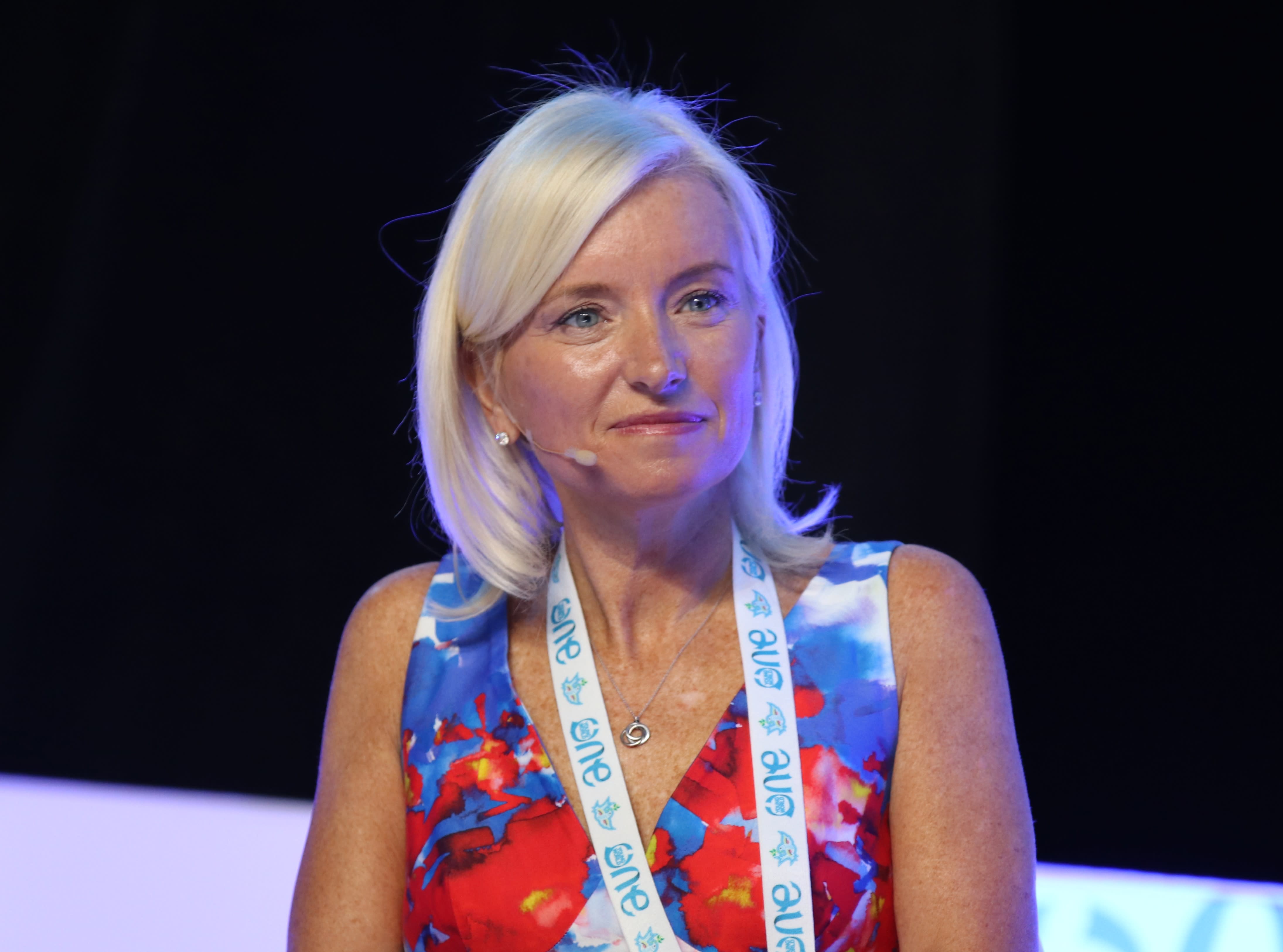
President of Global Marketing Solutions for Facebook, Carolyn Everson attends the forum titled “Poverty Alleviation & Economic Development” within the One Young World Summit 2017 at Agora Conference & Special Events Center in Bogota, Colombia on October 05, 2017. (Photo by Lokman Ilhan/Anadolu Agency/Getty Images)
Lokman Ilhan | Anadolu Agency | Getty Images
Facebook global ads chief Carolyn Everson said the summer of 2020 was the most difficult summer she’s had in her professional career, but that she’s thankful for way the the advertiser boycott in July has forced the company to address hate speech more aggressively.
“It was a very rough summer, the most difficult summer I’ve ever had professionally for sure, but sometimes through those most difficult moments you understand what really matters, and actions matter,” she said. “I’m thankful for the push we got because I think it’s making us better.”
More than 1,000 advertisers paused their social media advertising budgets in June, after a campaign called “#StopHateForProfit” called on advertisers to pressure Facebook to stop the spread of hate speech and misinformation on its platform. Everson spoke about the boycott and the company’s efforts around election safety Thursday at the Association of National Advertisers’ Masters of Marketing event, a major chief marketing officer conference held virtually this year.
“What the boycott did is it forced us to take all the work we’ve been doing over the last few years, get it into a more organized fashion, add a much-needed level of accountability, specific timelines and goals,” Everson told ANA CEO Bob Liodice. “It wasn’t like we woke up on July 1 and said, ‘Oh, goodness, hate, yes, we should get on that and start from scratch,’…We had been working on it for three, three-plus years in earnest.”
Everson spoke about the company’s work with the Global Alliance for Responsible Media, which is working on ways of aligning on definitions of hate speech and harmful content across platforms and enable it to be measured. She also spoke about audits Facebook has agreed to do.
She also outlined more recent policy updates, including a recent crackdown on QAnon conspiracy content and banning content that “denies or distorts the Holocaust,” a reversal of its previous policy.
“We just, thank goodness, strengthened and got our Holocaust denial policy to where I’m really now proud of it, which is it’s not allowed,” Everson said. “I no longer have to come into the ANA board meetings and other meetings and explain the nuances.”
Everson also spoke about Facebook’s actions around the election. She said the company “missed things in 2016” and said the company is now “in a very different place.”
“There have been 200 elections since 2016, including the midterm elections in 2018. And the best outcome is Facebook’s not in the headline, right?” she said. “That’s our measure of success: We don’t want to be in the headline. And there’s been 200 of them that we have successfully managed and navigated because we’ve gotten a lot smarter about what the threats are.”
Everson outlined a litany of updates, including the company’s stopping new political ads from running in the week before the Nov. 3 presidential election (while still allowing ads submitted before that week) and banning ads that seek to “delegitimize the outcome of an election.”
“We’re doing everything that we possibly can to protect the democratic process in this country,” she said.



